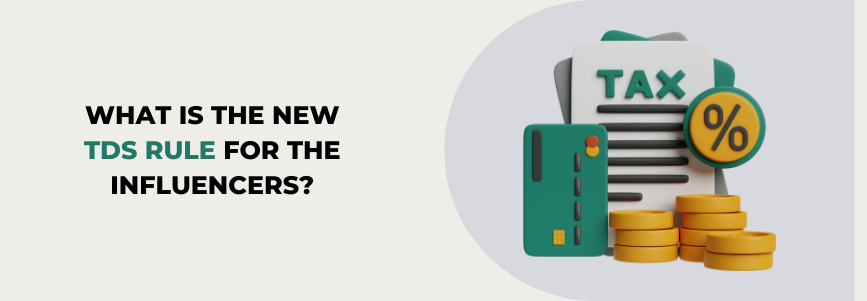Like any other job, Influencer Marketing has become a source of income for many in the past 2 years.
Not only this job gets fame, but it’s also a high-paying one. Social media users are now a crucial aspect of every company’s marketing strategy. Companies rely on influencers to market their products or services to their respective demographics. Since netizens are openly talking about collaborations and paid promotions, the Budget 2022-23 introduced itself with some additions.
With effect from 1st July 2022, the Finance Act 2022 inserted a new section 194R into the Income-tax Act, 1961. Tax at source will be deducted at 10% from the aggregate of the value of any benefit or perquisite provided to another person for their business/profession under the new section. In either case, the benefit or perquisite may take the form of cash or kind. A TDS (or Tax Deducted at Source) is not applicable under this section if the aggregate benefit value is less than Rs. 20,000. CBDT has clarified certain situations regarding the applicability of this section in circular no. 12 of 2022 dated 16th June 2022.
Accordingly, influencers will have to report every free sample they receive from brands in order to promote them to their audiences on their income tax returns. Influencers must pay TDS if they retain freebies, which are considered perquisites. It is anticipated that gifts, samples, and other promotional materials provided to social media influencers will be taxed as “income” for the influencers. In contrast, if a product is returned after it has been used, it will not be considered as part of section 194R.
The new rule is raising questions among many influencer marketing agencies. These include the cons as a result of the following.
- There are also very young influencers who are incapable of understanding tax filing.
- The new rule may also discourage barter collaborations due to ambiguity.
- Techno influencers are closest to the radar due to the fact that they receive and review heavy, expensive gadgets.
- Businesses, agencies, and influencers will have a difficult time tracking the tax files in the midst of their collaborations.
With this rule, the government aims to bring the entire influencer marketing industry under the tax ambit in order to organize it. While also proposing some cons, the new rule puts light on the issue of not getting paid at all. Despite being an effective way to promote and pay in kind, barter collaboration is not enough to cover the bills.
The subject remains ambiguous with some questions and predicted pros and cons, and influencers, agencies, and businesses strive to understand it better.




